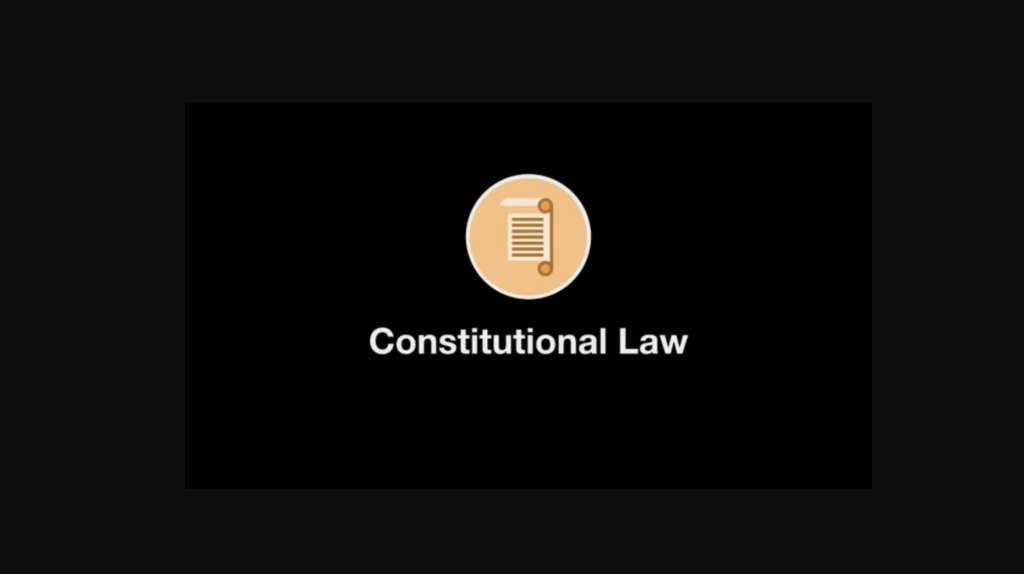Using LEEWS to Improve Legal Grammar and Style

Writing well in law school and on bar exams is not just about knowing the law—it’s about communicating it effectively. LEEWS (Law Essay Exam Writing System) provides a structured approach that helps law students master not only exam strategy but also the language and style that define professional legal writing. If you’ve ever struggled with making your essays sound more lawyerly, concise, and precise, LEEWS can fundamentally change the way you write and think about law exams.
The reality is that even brilliant legal thinkers can lose points because of unclear writing, awkward phrasing, or inconsistent structure. Grammar and style may seem secondary to substance, but on timed law exams, the way you present your analysis can determine whether your answer lands in the top percentile. LEEWS shows you exactly how to merge clarity, logic, and legal reasoning to make your writing stand out.
In this guide, we’ll take a deep dive into how LEEWS helps law students and bar exam candidates improve grammar, writing mechanics, and overall legal style—skills that continue to serve them long after graduation.
Why Grammar and Style Matter in Legal Writing
Before we examine how LEEWS helps with grammar and style, it’s important to understand why these elements are so essential in legal exams. Law professors and exam graders are trained to value precision, logical flow, and economy of language. A well-organized and grammatically sound essay communicates mastery of the material and a professional level of thinking.
Legal writing is distinct from other forms of academic writing because it demands clarity over creativity. Every sentence must serve a function—whether to establish an issue, state a rule, or demonstrate analysis. Weak grammar, long-winded phrasing, or ambiguous structure can obscure even the most accurate legal argument.
That’s why law exam prep isn’t just about memorizing black-letter law. It’s about learning to communicate in the disciplined, systematic way lawyers think and write. And that’s precisely what the Law Essay Exam Writing System (LEEWS) trains students to do.
The LEEWS Approach: Turning Legal Thinking Into Clear Writing
At the core of LEEWS is the philosophy that law exams test legal reasoning, not just recall. However, reasoning alone isn’t enough—you must express that reasoning in a format that graders can easily follow.
LEEWS trains students to think in a linear, issue-based way that naturally translates into cleaner, more grammatically sound sentences and paragraphs. The structure itself forces clarity.
Here’s how it works:
-
Issue Identification – LEEWS teaches you to spot and isolate each issue methodically. By writing concise issue statements, you avoid the long, rambling introductions that weaken many law essays.
-
Analysis Breakdown – The system helps you divide your analysis into small, manageable components. Each sentence serves a clear purpose, reducing the likelihood of grammatical clutter.
-
Rule Application – By applying the rule methodically to each fact, your writing gains logical flow. Grammar improves naturally when the logic of your argument is well-structured.
-
Mini-IRACs (Issue, Rule, Analysis, Conclusion) – The signature LEEWS technique encourages short, sharp mini-paragraphs that are easy to read and score.
This method not only sharpens your reasoning but also disciplines your grammar and sentence construction. You learn to eliminate filler phrases, redundant transitions, and confusing syntax. The end result? Writing that sounds professional, confident, and coherent.
Building Precision Through the Law Essay Exam Writing System
The Law Essay Exam Writing System isn’t a typical writing or grammar course. It’s a thinking system that produces good writing as a byproduct. By mastering its steps, students naturally write with more precision.
Precision in legal writing means more than just correct grammar—it’s about accuracy in both word choice and logic. LEEWS drills this through repetition and structure.
How LEEWS Sharpens Grammar:
-
Active Voice Dominance – LEEWS-trained writers rely heavily on the active voice. Instead of saying, “It can be argued that the defendant’s conduct was unreasonable,” you learn to write, “The defendant acted unreasonably because…”
-
Tight Sentence Construction – The focus on issue-by-issue analysis keeps sentences short and meaningful. This minimizes the risk of grammatical error and improves readability.
-
Parallelism and Consistency – Because every issue follows a similar IRAC format, your grammar becomes more consistent and rhythmic across the essay.
-
Error Reduction – The emphasis on organization leaves less room for rushed or careless grammatical mistakes that often occur in timed exams.
How LEEWS Elevates Style:
Legal style isn’t about sounding fancy—it’s about sounding precise and authoritative. LEEWS helps you develop that tone through structured thinking and confident phrasing.
-
You learn to write declarative statements instead of hedging.
-
You become comfortable using logical connectors that make your analysis flow.
-
You learn to transition between points without filler language.
Over time, your essays start to read like a practicing attorney’s brief—clear, persuasive, and concise.
How LEEWS Helps You “Think in Sentences” Like a Lawyer
One of the most transformative aspects of LEEWS is how it changes the way students think. Instead of formulating abstract ideas and then struggling to translate them into sentences, LEEWS trains you to think in structured sentences from the start.
That means as you identify issues, you’re already constructing clean, grammatically correct legal arguments in your head.
For example, rather than thinking:
“Maybe the defendant owed a duty… but it depends on foreseeability…”
You begin to write automatically:
“The defendant owed a duty to the plaintiff because the harm was reasonably foreseeable.”
This small mental shift eliminates the vague, meandering sentences that often plague student essays. It’s not just grammar improvement—it’s linguistic clarity rooted in legal logic.
When your thought process is structured, your grammar naturally follows. That’s the genius of LEEWS: it aligns the way you think, analyze, and write.
Grammar and Style Mistakes LEEWS Helps You Avoid
Even strong students make recurring grammatical and stylistic errors under exam pressure. LEEWS directly addresses many of these.
1. Run-On Sentences
When students try to cram too much analysis into a single sentence, clarity suffers. LEEWS’ mini-IRAC structure breaks these down into digestible parts.
2. Passive Voice
Many essays are filled with passive constructions (“It can be said that…”). LEEWS trains students to take ownership of their analysis using active, assertive language.
3. Redundancy
Repeating the same rule or conclusion is a common pitfall. LEEWS eliminates this by making each section self-contained and focused.
4. Ambiguity
Vague terms like “clearly,” “obviously,” or “probably” weaken authority. LEEWS emphasizes fact-based reasoning, replacing vague transitions with precise analysis.
5. Poor Transitions
LEEWS teaches logical sequencing between issues so that essays read smoothly without awkward jumps or disjointed ideas.
By addressing these common errors, the system doesn’t just improve your exam writing—it strengthens your professional communication overall.
How Grammar Supports Better Legal Analysis
LEEWS views grammar not as a set of arbitrary rules but as a framework for precision in reasoning. Clear grammar mirrors clear thought. When you write in well-structured sentences, you’re forced to clarify your ideas.
Take the following comparison:
“Because the contract was signed after the offer expired, which means that it might not be enforceable depending on whether the court considers the communication valid.”
“The contract is likely unenforceable because the offer had expired before acceptance.”
The second sentence—typical of a LEEWS-trained approach—is concise, grammatically correct, and directly tied to the legal principle. Grammar becomes a tool for logical control.
Style and Tone: Sounding Like a Lawyer, Not a Student
Another dimension of LEEWS (Law Essay Exam Writing System) is its focus on tone. Many students lose points because their essays sound uncertain or overly academic.
LEEWS-trained writing has a distinctly professional tone—confident, analytical, and objective. This style is cultivated through repetition of structured analysis, consistent terminology, and factual precision.
Instead of hedging phrases like “I think” or “it seems,” students learn to state conclusions with authority while still acknowledging ambiguity when necessary. For example:
“If the court finds that the defendant had a duty, liability will follow because the breach directly caused harm.”
That’s clear, assertive, and lawyerly. It shows understanding without unnecessary filler.
This balance of confidence and precision is what LEEWS builds—and it’s exactly what professors and exam graders reward.
The Link Between LEEWS Training and Bar Exam Success
Strong grammar and legal style aren’t just academic—they have real impact on bar exam performance. The Law Essay Exam Writing System has been proven over decades to help students perform better on essay-based exams at both law school and bar levels.
When you use the LEEWS method, you’re not just learning to pass exams—you’re internalizing habits that improve your writing across all professional contexts. Bar exam essays require concise reasoning under pressure, exactly the skill LEEWS develops.
LEEWS’ structured method eliminates panic and disorganization, allowing your grammar and logic to stay intact even under timed conditions. Many past users report that the method gave them a calm, step-by-step way to express their thoughts clearly while others struggled to get started.
Practical Writing Benefits of LEEWS
Let’s look at how LEEWS specifically improves your legal grammar and writing style in practice.
1. More Coherent Paragraphs
By following a formulaic structure, each paragraph has a defined purpose: state the issue, present the rule, analyze, conclude. This discipline naturally eliminates fragmented or unfocused writing.
2. Better Syntax and Flow
Since each thought builds logically on the previous one, sentence flow improves. Your grammar aligns with reasoning, creating a natural, readable rhythm.
3. Reduced Editing Time
When you train your mind to produce clean sentences during your first draft, you waste less time revising. LEEWS helps you “write cleanly” the first time.
4. Improved Vocabulary Precision
You learn to choose legal words carefully—using terms like “liable,” “valid,” “enforceable,” “reasonable,” and “causal link” appropriately. Word economy becomes second nature.
5. Enhanced Confidence in Writing
Confidence in structure leads to confidence in language. The moment you know exactly how to approach a question, your writing style becomes naturally assertive and controlled.
Why LEEWS Works When Other Law Exam Prep Methods Don’t
Traditional law exam prep often focuses on memorizing outlines, practicing old exams, or reading sample answers. While these help you learn the law, they rarely teach you how to write about it effectively.
LEEWS fills that gap by focusing on how to think, organize, and express. Its methodology doesn’t rely on rote memorization but on a disciplined, analytical writing framework.
Most students who adopt LEEWS report improvements not just in their grades but in the clarity of their thinking and writing across all law school tasks—briefs, memos, and even oral arguments.
By internalizing the LEEWS structure, you make fewer grammatical mistakes because your thought process is cleaner and more deliberate. It’s not about forcing grammar rules—it’s about developing the mental habits that lead to good grammar naturally.
Applying LEEWS Techniques to Everyday Legal Writing
Although LEEWS was designed primarily for exams, its influence extends to all professional legal writing tasks. Once you’ve trained under its system, you’ll find that:
-
Emails to clients become clearer and more direct.
-
Case briefs become more concise and better organized.
-
Memos and motions show improved tone and structure.
You begin to write like a practicing lawyer, not a student. The same discipline that keeps your essay paragraphs tight will help you draft contracts, pleadings, and opinions efficiently.
That’s why many practicing attorneys credit LEEWS with helping them early in their careers—by giving them a foundation for strong grammar and logical writing they still rely on today.
How LEEWS Teaches You to Edit Like a Pro
Another hidden advantage of the Law Essay Exam Writing System is that it trains your internal editor. With its focus on concise issue analysis and logical sequencing, you become highly attuned to redundancy, grammatical errors, and weak phrasing.
LEEWS gives you a self-check system:
-
Is this sentence necessary?
-
Is the logic clear?
-
Does this transition make sense?
-
Have I stated the rule correctly and precisely?
This awareness makes your grammar cleaner and your writing tighter, even in non-exam contexts.
What Students Say About Writing After LEEWS
Students who complete the LEEWS course often mention that they no longer overthink grammar or style because structure keeps them on track. Some report that professors noticed immediate improvements in clarity and organization.
Common feedback includes:
-
“My writing sounds more confident.”
-
“I finally understand how to make my essays flow.”
-
“LEEWS taught me to eliminate clutter from my sentences.”
-
“Grammar errors disappeared once I started thinking in mini-IRACs.”
These outcomes demonstrate how the system doesn’t just help you pass exams—it helps you write like a lawyer in every sense.
The Long-Term Value of Clear Legal Writing
The skills you learn through LEEWS extend far beyond law school or the bar exam. Strong grammar, logical structure, and effective style are indispensable in every legal career path—from litigation to corporate counsel to academia.
Judges, partners, and clients all value lawyers who write clearly. Legal writing filled with grammatical errors or inconsistent style undermines credibility, even when the argument itself is solid.
By training with LEEWS, you develop the lifelong habit of writing clearly under pressure—a skill that distinguishes top-performing lawyers from average ones.
How to Get Started with LEEWS
If you’re serious about improving your grammar, writing style, and performance on law exams, enrolling in LEEWS is one of the smartest investments you can make in your legal education.
Our program is designed to:
-
Teach you a proven step-by-step exam system used successfully by thousands of law students and bar candidates.
-
Help you write with precision, clarity, and confidence under timed conditions.
-
Instill professional-grade writing habits that last your entire legal career.
LEEWS has been refined over decades of feedback from top law schools and practicing attorneys. It’s not just theory—it’s a tested method that consistently delivers results.
Ready to master law exams the right way?
Enroll now in LEEWS (Law Essay Exam Writing System) and begin your journey to writing—and thinking—like a top lawyer.








